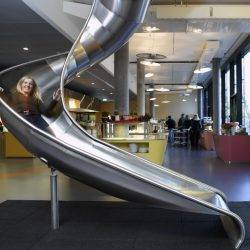September 14, 2017
Millions of older workers fear poor health will shorten their working lives
 Even though the age of the working population in the UM continues to rise, more than half of over fifties people have concerns around work and its impact on their health as they age, with women (61 percent) particularly worried about this. According to the study from Aviva, 13 percent intend never to stop work completely although only 14 percent of older workers say their workplace culture is positive towards them. According to Aviva’s latest Real Retirement study, 55 percent admit to fearing that work will become detrimental to their health or they might not be well enough to keep working, including 13 percent who say this is already an issue for them. Fewer than one in five (17 percent) over-50s workers say they have access to wellbeing advice and initiatives in the workplace which could help prevent health issues from impacting their careers.
Even though the age of the working population in the UM continues to rise, more than half of over fifties people have concerns around work and its impact on their health as they age, with women (61 percent) particularly worried about this. According to the study from Aviva, 13 percent intend never to stop work completely although only 14 percent of older workers say their workplace culture is positive towards them. According to Aviva’s latest Real Retirement study, 55 percent admit to fearing that work will become detrimental to their health or they might not be well enough to keep working, including 13 percent who say this is already an issue for them. Fewer than one in five (17 percent) over-50s workers say they have access to wellbeing advice and initiatives in the workplace which could help prevent health issues from impacting their careers.






 A third of line managers have admitted they would struggle to identify mental health issues and a similar percentage wouldn’t know what to do if a team member had a mental health problem. This is according to new data from Bupa which argues that while mental health and wellbeing support in the workplace has significantly improved in recent years, and employer support is gaining attention with two in five managers being trained; line managers would still benefit from support and advice to identify mental health issues within their teams. These findings come at a time when NHS figures identify that almost a third of fit notes issued by GPs are for mental health problems – making it the most common reason for people to be signed off from work. Recognition of the role employer support plays in helping colleagues with mental health conditions is clear as two in five (41 percent) line managers have already received related training from their employer. And conversations around mental health at work are being reframed as more than a third (35 percent) of employees feel more comfortable talking to their manager about their mental health than before.
A third of line managers have admitted they would struggle to identify mental health issues and a similar percentage wouldn’t know what to do if a team member had a mental health problem. This is according to new data from Bupa which argues that while mental health and wellbeing support in the workplace has significantly improved in recent years, and employer support is gaining attention with two in five managers being trained; line managers would still benefit from support and advice to identify mental health issues within their teams. These findings come at a time when NHS figures identify that almost a third of fit notes issued by GPs are for mental health problems – making it the most common reason for people to be signed off from work. Recognition of the role employer support plays in helping colleagues with mental health conditions is clear as two in five (41 percent) line managers have already received related training from their employer. And conversations around mental health at work are being reframed as more than a third (35 percent) of employees feel more comfortable talking to their manager about their mental health than before.























August 14, 2017
Seven ways in which flexible working is making our lives more rigid
by Mark Eltringham • Comment, Flexible working, Technology
(more…)